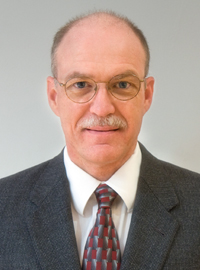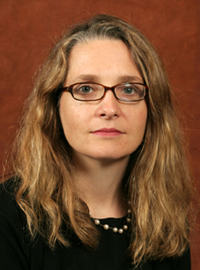
What factors enable someone to become an effective teacher? Armed with nearly $1.2 million in research grants, two Florida State University faculty members are seeking answers to that question—and are compiling their findings into a Web site that will help school administrators and other policymakers nationwide create the conditions necessary for students to excel in the classroom.
Tim R. Sass, a professor of economics at FSU, is the co-leader of two research projects designed to provide statistical evidence on the characteristics and education of effective teachers. One of the projects is funded through a four-year, $960,000 grant from the U.S. Department of Education’s Institute of Education Sciences; the other, which recently concluded, was funded through a one-year, $208,000 grant provided by the National Board for Professional Teaching Standards.
“The thing that matters most in terms of children’s education is the quality of their teachers,” Sass said of the projects. “We’re trying to come up with objective standards to measure teacher performance and also determine what factors affect that performance.”
Working with Sass is Stacey Rutledge, an assistant professor of educational leadership and policy studies at FSU. Rutledge has conducted extensive interviews with school principals in order to learn more about the mix of personal and professional attributes that the principals are looking for when they interview prospective teachers. Understanding why principals hire certain job candidates and not others is an important step in developing objective standards for measuring teacher effectiveness, she explains.

“We have a federal policy—the No Child Left Behind Act of 2001—that says all teachers need to be highly qualified, but sets narrow criteria for what constitutes effectiveness: a bachelor’s degree, certification, and having passed a content knowledge assessment,” Rutledge said. “So this really is an attempt to identify a broader set of criteria for defining effectiveness.”
In developing those criteria, the researchers have conducted surveys and compiled data on a variety of topics, including the following:
- Evaluations of the effects of “high-stakes accountability,” in the form of state and federal mandates, on the hiring of teachers.
- Identification of the most and least effective teachers through the use of principal assessments and then studying the differences between the two groups.
- Analyses of test scores for students of specific teachers over three consecutive years as a means of setting benchmarks for teacher effectiveness.
“A lot of what we’re looking at is big-picture stuff, such as the effects of professional development on teacher performance,” Sass said. “One could assume that professional development would help someone become a better teacher, for example, but until you actually measure it, you don’t know exactly what works and what doesn’t.”
Working with colleagues at the University of Wisconsin at Madison, Sass and Rutledge have created a Web site, “Teacher Quality Research” (www.teacherqualityresearch.org) that will function as a clearinghouse for information that school districts, principals, academics and policymakers throughout the nation can use as a resource.
“I would really like to see a broader understanding of what comprises teacher quality,” Rutledge said. “Hopefully through our research and the Web site, this broader understanding will begin to filter out into the educational community.”
Also participating in the project for FSU is Cynthia T. Thompson, a doctoral candidate in the College of Education, and W. Kyle Ingle, a recent graduate of FSU’s Department of Educational Leadership and Policy Studies and now an assistant professor at Bowling Green State University.




